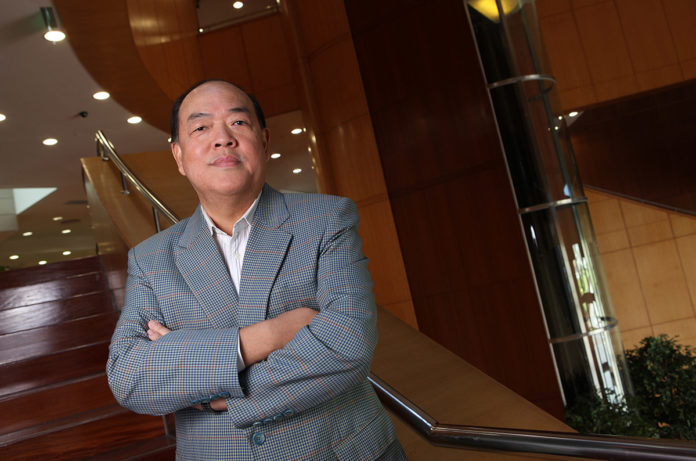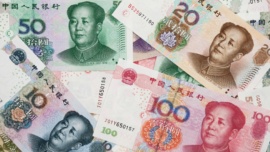It’s time to know more about Ho Iat Seng, one of the frontrunners in the race to become the city’s third Chief Executive
“There are a lot of difficult tasks for the Macau Chief Executive. My ability is not suited [to the job].”
So said Ho Iat Seng, President of the Legislative Assembly, in a media interview in 2014. The local political heavyweight, regarded as one of Beijing’s most trusted men here, has routinely refuted the possibility of running for the city’s top job.
Asked the same question two years later, his stance remained steadfast.
“Some people of my generation have already retired,” he simply stated in 2016. “There are many talents in Macau [who could become Chief Executive].”
But as the election edges closer these platitudes have undergone change, with a 400-strong electoral committee to be convened to elect, in accordance with Beijing’s mandate but to the chagrin of many, the city’s third Chief Executive. All of a sudden this prominent local businessman is now a frontrunner in the race, one he seems to be ready for.
Born in Macau in 1957 and locally educated, he later helped expand the business empire established by his father Ho Tin, at home and abroad, with his five siblings, including elder sister Ho Teng Iat, president of the Women’s General Association of Macau. Ho Tin is widely known as ‘the first Macau industrial entrepreneur,’ establishing Ho Tin Industries Ltd. in 1956 as one of the largest industrial companies in Macau manufacturing plastics, electronics and telecom products.
According to Ho Iat Seng’s latest asset declaration, dated 2018, he now serves as Managing Director of Ho Tin Industries, with stakes in four other companies, including Macau Centre Investment Co. Ltd., which runs the commercial-office-hotel complex Macau Centre in Beijing’s commercial district Wangfujing, and three other firms with investments in Mainland Chinese cities Hangzhou and Zhuhai.
Bottom to top

‘Since [China’s] reform and opening up [in 1978], [Mr. Ho] has invested in and set up factories in Mainland cities like Zhuhai, Foshan, Hangzhou and Ningbo, strengthening the economic co-operation and technological exchanges between [Macau] and the Mainland,’ an article in Chinese state-owned newspaper People’s Daily said in 2001.
Another article in the same year by semi-official Chinese news agency China News Service said he had worked from the bottom to the top in the family’s business empire.
On the Mainland Ho has the deepest connection – economically and politically – with Zhejiang Province, where his family hails from. While Ho Tin Industries has worked with the eastern Chinese province since the 1990’s on technology and product research and development, Mr. Ho served as a member of the Chinese People’s Political Consultative Conference (CPPCC) Zhejiang Committee, the top political advisory body for the province, for four terms spanning 1978 to 1998.
Zhejiang is also one of the provinces where Chinese President Xi Jinping saw his political fortunes take off, serving as the province’s party boss from 2002 to 2007.
Prominent position
Only after the city’s handover has he become more of a household name on the local political scene. The businessman was elected as a member of the Standing Committee of the Chinese National People’s Congress (NPC) in 2001, and has since been the city’s sole representative in the de facto body comprising fewer than 200 members in the Chinese parliament.
Three Macau residents were members of the NPC Standing Committee before Mr. Ho: Ho Yin (unrelated to Ho Tin and Ho Iat Seng as they have different surnames in Chinese) and Ma Man Kei, two late prominent businessmen; and Ho Yin’s son Edmund Ho Hau Wah, who served on the NPC Standing Committee before becoming Macau’s first Chief Executive.
This position at the national level had already made Ho Iat Seng one of the favourites to run for Chief Executive in 2009 alongside ultimate winner Fernando Chui Sai On. But Mr. Ho – a member of the Executive Council between 2004 and 2009 which advised the Chief Executive on policy formulation – denied at the time he had any such aspirations and chose to run in the indirect election for a seat in the Legislative Assembly in the same year. This he won and became vice-president of the legislative body.

No complex connections
After completing the four-year term, he was re-installed by the business constituency and has served as President of the Legislative Assembly since 2013. During his tenure he has been vocal in his criticism of the government’s management and drafting of bills as well as the management of the city’s public finances.
With a growing political profile, speculation that he could become Mr. Chui’s successor has never abated. On a public occasion last year, Mr. Chui’s elder brother Chui Sai Cheong, vice-president of the Legislative Assembly, even noted the legislature president “fulfilled all the criteria” to become Chief Executive.
All the while, Mr. Ho has rejected this possibility, at least publicly. In a quite open interview with All About Media in 2014, he spoke of being Chief Executive in Macau as easier than in nearby Hong Kong given the smaller supervision force, namely the legislative body. But he also highlighted the difficulties the job entailed.
“As Macau does not have any economic problems, the most important [consideration for the Chief Executive] is being reasonable and fair. Being fair is a most difficult task,” he said in explaining why he was not suitable for the city’s top job.
“Macau is a place with complex personal connections,” he intoned, “and I don’t have complex personal connections.”

Trusted man
Nevertheless, his dismissive tone has shifted since early last year. When pressed again about the possibility, he simply stated, “I don’t know.”
Only this February has he apparently somehow made up his mind, saying: “I will actively and prudently consider [running for Chief Executive]” in an open-to-interpretation response, prompting many to believe he will become a candidate.
Mr. Ho did not reply to requests for comment upon this story. This magazine has also asked several local political figures, who will likely become members of the 400-strong Chief Executive electoral committee, but they all declined to comment as well.
“The central government trusts Mr. Ho – if not he wouldn’t have served on the NPC Standing Committee [since 2001] and wouldn’t have gone to Beijing every two months for the meeting,” said one, speaking on condition of anonymity. “If he really runs for election, given that he is prudent and cautious he is pretty confident of winning.”
So thinks Larry So Man Yum. The political commentator believes the Legislative Assembly president is the man to beat, whether he is running against other candidates like Secretary for Economy and Finance Lionel Leong Vai Tac, despite Mr. Ho’s age and other factors.
“[Mr. Ho] is the frontrunner,” he said emphatically.
Whoever is to succeed Mr. Chui, many believe it depends upon Beijing’s wishes, with several months still to go.
“One day is a long time in politics,” said Mr. Ho in the 2014 interview.
Other candidates for CE election
Lionel Leong Vai Tac
The Secretary for Economy and Finance is another hot favourite tipped to succeed Chief Executive Fernando Chui Sai On. Prior to entering the civil service in 2014 as Secretary, Mr. Leong, born in Macau in 1962, has been a reputable businessman here. The University of Waterloo, Canada graduate was best known for setting up Seng San Enterprises Limited, a garment manufacturer, in 1997, and Smartable Holding Limited in 2001, which has gradually transformed his business from garment manufacturing into laundry services for the territory’s hotels.
Leong also served in several important public positions before joining the government. A member of the Executive Council, a government-appointed body helping the Chief Executive in policy formulation, between 2004 and 2014, he was the founding president of local think-tank Macau Development Strategy Research Centre, a position he held from 1997 to 2014. Meanwhile, he was one of the 12 Macau deputies to the National People’s Congress – the Chinese parliament – between 2008 and 2018.
His family is also seen to have connections with Mainland China. His maternal grandfather Chan Mun was one of the leaders of the New Democracy Movement in the city in the 1940’s and 50’s, and helped found Xin Yuan Di newspaper in 1950, regarded as the forerunner of Macao Daily News, the city’s largest newspaper, prior to the latter’s inception in 1958.
When asked in February whether he would run for the Chief Executive election, Mr. Leong did not deny the possibility, only saying he would consider the opinions of the public and other factors.
The others
Incumbent Secretary for Security Wong Sio Chak, who was born in Guangdong Province in 1968 before moving to the city in the 1990’s, is also considered a likely candidate for the election although he has repeatedly denied he would run. Fellow incumbent official, Secretary for Social Affairs and Culture Alexis Tam Chon Veng, a Burma-born Chinese brought up in Macau, has also been linked to the race for years, but asked about the possibility on a public occasion in February he only espoused commitment to his work as Secretary.
Secretary for Administration and Justice Sonia Chan Hoi Fan was once also considered a dark horse for the city’s top job but after the family member recommendation scandal highlighted in a report by the Commission Against Corruption (CCAC) in March her chances appear slimmer. The report said Ms. Chan recommended her elder sister to work in the Public Prosecutor’s Office in 2008 – a practice that did not violate any law but which the watchdog said did nothing for the image of the Macau Government.
Four criteria of CE
Zhang Xiaoming, Director of the Hong Kong and Macau Affairs Office, recently listed the four basic criteria for becoming the Chief Executive of Macau, similar to those the central government laid down for the Hong Kong Chief Executive election in 2017. The four criteria, in order, are:
- Love the country, love Macau
- Be trusted by Beijing
- Be capable of governing
- Be supported by Macau society
Dates to watch
April 8-May 7 – Legal entities (registered associations) should submit their respective list of voters to the Public Administration and Civil Service Bureau, who will cast ballots on the election for the 400-strong Chief Executive electoral committee in June; candidates for places on the electoral committee should also submit their applications.
Ho Iat Seng will likely announce in this period whether he is running for the Chief Executive election – as the Legislative Assembly president and member of the Standing Committee of the Chinese National People’s Congress, he is guaranteed a place on the electoral committee, meaning he would have to forfeit his place on it to run for the city’s top job.
June 16 – Election of the electoral committee; based upon the past experiences of incumbent government officials running for the Chief Executive election (Fernando Chui Sai On quit the job of Secretary for Social Affairs and Culture and officially announced his bid in 2009 following election of the electoral committee), Secretary for Economy and Finance Lionel Leong Vai Tac might also only announce his bid, if running, upon appointment of the election committee
June 16 to mid-August – Nomination period, in which Chief Executive candidates have to secure the support of at least one-sixth, or 66 members, of the electoral committee for a place in the election; campaign period
Mid-to-end August (date to be confirmed) – Chief Executive election.
























